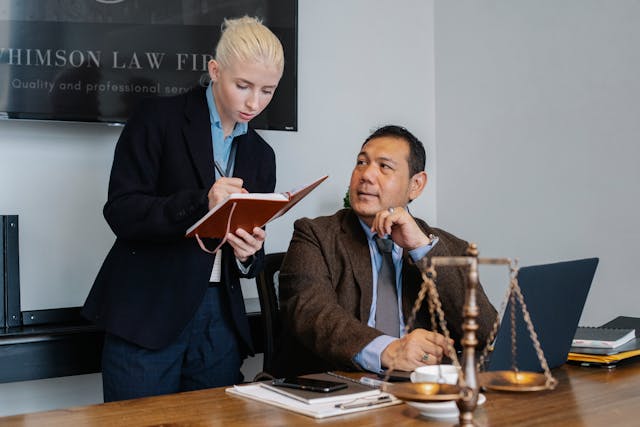The legal sector has always been known for its high work ethics and is applauded in each legal system; a law firm will always pursue top service providers in the ever-changing market. However, legal professionals are searching for improvement in their career paths, the security of their jobs, and environments within which to enhance their capabilities. However, a disconnect between law firms and legal professionals endures, invariably making conditions uncomfortable for both parties. The solution to this is working towards a more amicable, open, and positive atmosphere.
The strife between law firms and legal professionals is due to the undesirable situation of the expectations-resources gap. Law firms value professionals with content and skills capable of changing, thinking out of the box, and putting the client before themselves. On the other hand, legal professionals encounter problems searching for the best firms that invest in their careers and health or political science or work with large volumes and minimal mentoring guidance.
This gap is fueled by the increase in complexity of legal challenges, soaring clients’ expectations, and pressure for law firms to adopt modern technology, amongst others. However, law firms have this odd practice of expecting their legal professionals to be computer-literate. In contrast, most of these law firms lack the tools and facilities to offer meaningful professional development in this field.
A very effective means of addressing this challenge is clear communication. Law firms may establish such mechanisms for lawyers to put their views across constructively. If both sides of the bargain have stated the expectations as early as possible and as often as necessary, then both sides stand a chance of attaining the common goal.
For example, law institutions must offer realistic job previews such as outlining what is expected of the job once hired, instead of limiting it to daily activities. Also, legal professionals may be motivated to express their aspirations and worries about their career path. Clear and consistent communication from both ends will enhance the chances of central requirements being observed by both parties.

Law firms need to put resources into the members of the law firm if they wish to enhance people’s commitment to stay with the law firm and use their skills for a long time. Legal professionals should be provided with continuous development via active activities like training, class advancement, and certificates to help them develop their law careers and make better profits for the firm.
They also need to be aware that mentoring programs are important. Senior lawyers and any of the partners should be able to set aside their time to mentor younger associates on not only important law techniques but also work–life balance and career growth levels. If the companies work on developing their legal specialists, it is more likely that they can keep their most competent employees in their companies.
It is well known that the legal profession is widely characterised by long hours and too much pressure, which contributes to workplace stress and staff attrition. To enhance the work-life integration of lawyers, it will also be prudent of the organisational leadership to introduce flexible work arrangements where employees can work from home or adopt different working.
Law firms that seek to implement flexibility in their work will more often than not prefer those at the highest levels of the industry where there is already a transition to hybrid working models.
Another way to bridge the divide between law firms and legal professionals is through technology. The appropriate technology should come in handy amid the AI-induced legal challenges, such as AI legal research tools, and document generation, and eradicate the struggle in work, thus limiting the time taken on dull activity and allowing lawyers to do more useful and privileged client work. For instance, law firms that adopt technology also encourage a more creative and adaptable workplace surrounded by legal talent ready to embrace such scenarios.
Still, in order for this to work, adequate teaching and assistance regarding the new technology should be provided and offered to the legal personnel. It is easy to buy the tools into which a firm has invested a lot in. However, the firm has to make sure that the teams can use the tools properly.
Effective communication is crucial in solving the problem of engaging all interested parties in the integration of legal professionals and law firms. Law firms should embrace transparency, supportive atmosphere, career growth, and technology integration. In the same way, the legal professionals must express their expectations and readiness for changes and innovations.
There’s a tendency towards collaboration, which legal professionals are heading to in the future, and it is here as they work to protect and overcome hurdles as identified. To bridge this gap, law firms must foster environments where legal professionals feel supported and appreciated. This, in turn, will increase job satisfaction and retention rates in law firms, positively affecting the clients’ interests. As long as there is target mutual understanding complemented by purposefully directed dialogues with a mutual objective that is beneficial to all parties, the legal practice will always move as one unit and achieve the required aims.

Copyright 2022 © Owen Reed Ltd.